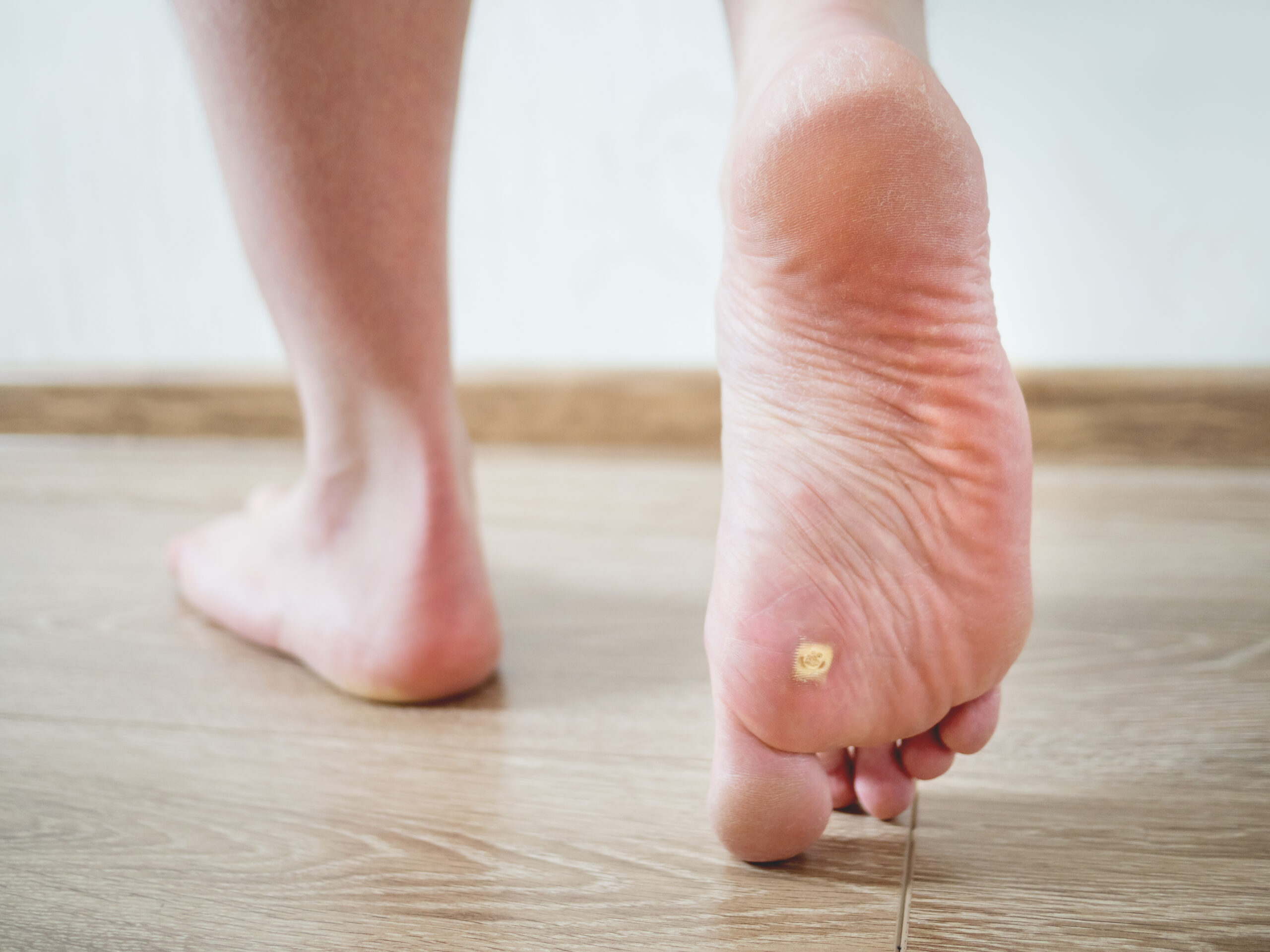If you have noticed small, rough growths on the bottom of your feet that become painful when you walk or stand, you might have plantar warts. Luckily, plantar warts usually go away without treatment and are not a huge cause for concern. However, it is important to identify the symptoms and know when to contact your doctor if problems do arise.
Plantar warts are directly associated with human papillomavirus or HPV (Mayo Clinic, 2020). Plantar warts are caused by an HPV infection that permeates the bottom of the foot either through tiny cuts or weak spots. How the wart feels and looks can vary, some being flatter or smoother, some being bumpier and rougher. The small blood vessels that grow inside the wart can cause what look like dark spots on it, which is one of the most common identifying traits (Michigan Medicine, 2020). Some warts are painful and others are not, it just depends on location and how much pressure is put on the area.
Plantar warts are not usually contagious, but occasionally transmission can occur when sharing personal items. They can also be spread to other parts of the body by regularly touching the wart and then touching other areas of the skin.
Plantar warts do not always cause discomfort and can frequently go away on their own. However, if pain occurs and the warts persist or even spread, it is important to contact a healthcare provider. Other signs a doctor should be contacted include bleeding or change of appearance on the wart, if you have diabetes, or if you have a compromised immune system (Mayo Clinic, 2020). Your doctor can identify the condition and come up with an effective treatment plan that fits your needs.
If you believe you might have plantar warts or you have any foot concerns, contact our office today. At Podiatry of Greater Cleveland our physicians are here to answer any questions and help you keep your feet comfortable and healthy.

